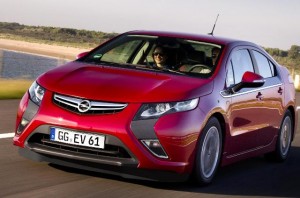
Author: Robin Roberts
Small businesses are likely to be in the vanguard of the move towards greater use of hybrid and plug-in powered cars and vans.
A new type of generation gap is opening up and will drive car policies in future. Older motorists are wedded to conventional cars and vans while younger drivers are more ready to accept hybrids or plug-in powered vehicles and some will also want the latest models to use as mobile advertisements catching the eyes of potential clients.
Two years ago, Deloitte consultants predicted electric and other ‘green’ cars are expected to make up a third of global sales by 2020.
Philippe Aussourd, president of AVERE, the electric vehicle association, says that although older people may find the idea of combustion-engine-free cities by 2050 incredible, the younger generation thinks differently.
“Teenagers today don’t understand the automobile and transportation in the same way as their predecessors did,” he says. “In cities, a great majority – between 80% and 90% of cars – drive less than 40 kilometres a day. It is natural for people to use electric cars for this type of driving.”
Car manufacturers are examining a wide range of new technologies to achieve this aim, including battery-powered electric vehicles, hydrogen-fuelled cars and alternative fuel such as biofuel and the first range extended Vauxhall Ampera (above) has been voted Car of The Year 2012.
Electric cars are still dogged by three main problems: their expensive batteries make them much more costly than conventional cars; they require a network of points where they can be charged, which has yet to be installed; and they typically have a range of only 160km.
Aussourd says this problem can be solved if countries invest in recharging points. “Many people say there are obstacles to the charging infrastructure, but is it really a problem?” he asks.
These new models are more expensive to buy but their running costs in pence per mile can be incredibly small by comparison to today’s diesel and petrol cars and there is a growing trend towards environmental concerns being reflected in company car advice and buying decisions.
Businesses must be seen to be going green as well as actually making the move and if the internal combustion engine is banned from urban areas by 2050 as wanted by the EU, then companies in towns and cities will have to make the switch as the prohibition is expected to be gradually ramped up by way of “ emissions charges ”.







